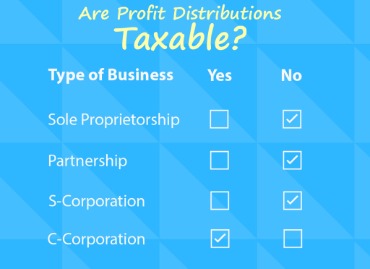
Banks have been tightening up their security (which is a good thing), so you may have to jump through a couple of security hoops to get connected. QuickBooks Solopreneur, owned by Intuit, is a basic online and mobile app designed primarily for freelancers or independent contractors who file a Schedule C for tax purposes. Key features include tracking mileage, categorizing business expenses, excluding personal expenses, full integration into TurboTax, and estimated quarterly tax payment calculations.
Sage is our pick as the best accounting software for multiple users because that’s what the program is designed for. If your business has an accountant, they can use the software and access your books for no additional fees. When choosing the best accounting software for your business, there are several factors you should consider, including price, features, the type of software you need and what your company’s specific needs are. Additionally, when I generated an invoice, the system alerted me if any necessary information was missing to save the invoice. A form would then appear on the same screen, enabling me to promptly add the required details, such as a service item for sale or a customer.
Solopreneur lacks Online’s reporting, inventory, and sales tracking tools. Accounting software is software that automates the most important bookkeeping tasks for small businesses. Depending on the type of accounting software you invest in, the software will help you create and send invoices, track projects and spending, and much more. QuickBooks Online has a longstanding reputation as one of the easiest accounting software programs to use.
It’s Tax-Compliant
Though the lower-level plans are limited in terms of inventory control, the Standard plan includes 10 custom reports and up to 5,000 invoices per annum. Accounting software is used by individuals and business owners to enter income and expenses and track their finances. It’s more efficient and makes fewer mistakes than manual processing. It can also save time with features like automation and it gives the owner a place to store important documents and receipts to access at any time. If accounting isn’t your strength or even if it is and you want to save time, read on to see which accounting software is right for your business. Enterprise resource planning (ERP) software includes all the features of accounting software, plus additional features such as CRM, inventory management and project management.
Wave is the most affordable accounting software
- You can also track your time, expenses, and mileage all in one place, which is helpful for you and your client when it comes to billing.
- I could filter for only receipts, mileage, bills, contacts, documents, invoices, statements or checks.
- By clicking “edit dashboard,” you can only remove a couple of reports but cannot add any new ones.
- If your business has an accountant, they can use the software and access your books for no additional fees.
But if Wave doesn’t have the right features for your small business, you do have other free accounting options—ZipBooks, SlickPie, or another free accounting software provider could work better for you. If you don’t use accounting software, you’ll probably catalogue your financial transactions by hand using a spreadsheet. This method can be cheaper, but it means you’re doing every financial task on your the issuance of common stock own.

Compare the Best Accounting Software for Small Businesses
Bonsai is one of the most popular accounting software programs among freelancers due to its relevant, easy-to-use toolkit of features. For instance, you can create and manage proposals entirely within Bonsai. If you’re a business selling products online, then Xero might be the desktop accounting software for you. This includes the cost of manufacturing or purchasing the goods and shipping and handling.
All you have to do is fill in the blanks and select from lists of variables like customers and items. The most common types of transactions that a small business needs are invoices and bills, and most of the services we review support them. Once you have a customer record and start creating invoices, sending statements, and subledger vs general ledger recording billable expenses, you can usually access historical activities within the record itself.
I was then taken through a wave accounting reviews two-step process to verify my identity using my email and mobile phone. NetSuite’s accounting software is a good choice for businesses that need help with financial compliance and those that want to automate as many accounting tasks as possible. Once you’ve sent your invoice, you can then track invoices to ensure they’re paid, run reports that show the age of each outstanding invoice and apply invoice payments to specified transactions. After creating the project, I was taken to a page designated to that project. Here, I could post updates on the project’s status, track hours worked and view project invoices, estimates, expenses and profitability reports, all from the project’s page. By clicking “more actions,” then “generate invoice” from the top of the page, I could also easily bill a client.
You can convert the quote and bill by a percentage of the original quote or a set quantity, rate or amount. And, you can attach documents to the invoice when needed, including warranties, contracts and return policies. AccountEdge’s invoicing features allow you to send the invoice by email or print an invoice and you can set up recurring transactions after you’ve created your first transaction invoice. Some notable features offered by AccountEdge include its custom reporting, data security, invoicing and project time tracking tools. We researched reviews from real users to gauge their opinion of each platform. We wanted to get their opinion about how simple the software was to use and that, according to recent users, the companies provided satisfactory customer service.
Finding the best online accounting software for your small business can seriously transform your working life. With less time spent on data entry, you have more time for the things you like most about small-business ownership, whether that’s getting to know customers or making products you’re proud of. QuickBooks is easily one of the most popular financial, tax, and accounting software options in the world. However, Xero’s $13 a month plan limits you to entering only five bills and sending only 20 invoices a month. You can send unlimited invoices and quotes with only the Growing and Established plans, which start at $37 and $70 a month, respectively. In contrast, both QuickBooks and FreshBooks offer small-business expense tracking up front.
